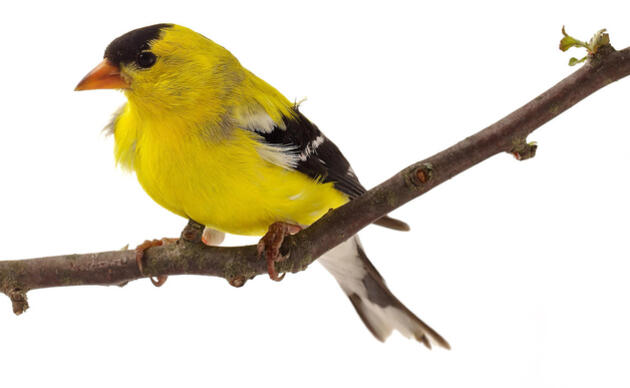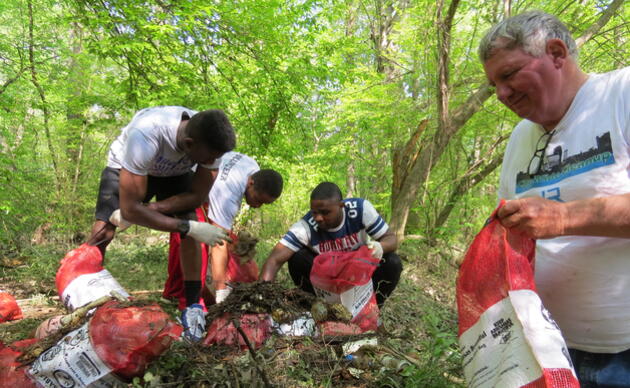Alarming headlines came out last year – we’ve lost 1 in 4 birds since 1970! The reaction from concerned people is “what can I do?” It is easy to feel overwhelmed by such dire news, which is on top of headlines about insect populations collapsing and climate change. The old environmental adage applies: Think Global, Act Local. Makes changes where you have influence–in your own life and community. Here are 7 simple actions.
1) Make your birding count for the birds. Join a community science project like the Great Backyard Bird Count and Project FeederWatch. Each of our individual observations add up to the big picture of which birds are in trouble and where we should work to help.
2) Make windows safer. Up to 1 billion birds are estimated to die each year after hitting windows. Even if only a few birds hit your windows each year, multiply that by all the houses across the country and around the world. Provide a visual barrier using decals, film, cords or netting. Whatever you install, gaps must be no more than four inches to prevent birds from trying to fly through. The American Bird Conservancy tests and recommends certain products.
3) Garden with natives. Plants that are native to Arkansas are food for the native insects that are food for the birds. With 96 percent of all terrestrial bird species feeding insects to their young, planting insect-proof exotic plants is like serving up plastic food. No insects? No birds. Read Doug Tallamy’s Bringing Nature Home and Benjamin Vogt’s A New Garden Ethic. Audubon’s Plants for Birds database helps you select plants and find sellers. Ask your garden center to offer natives; supply will grow to meet demand.
4) Avoid pesticides. More than 1 billion pounds of pesticides are applied in the U.S. each year. They can be toxic to birds and their prey. Honeybees, Monarchs, and native pollinators can be harmed too. Remember, a native plant garden’s purpose is to harbor insects.
5) Drink bird-friendly coffee. Most coffee plantations destroy forests our birds depend on while they winter down south. Coffee with the Smithsonian Migratory Bird Center’s bird-friendly certification is not only grown under the canopy of native trees, it also meets organic and fair trade standards. Ask retailers to sell it.
6) Reduce plastic use. Plastic bits have polluted just about every corner of the planet. Seabirds and other sea life are dying from consuming plastic trash. Advocate for bans of plastic bags, Styrofoam, and straws. Reduce your plastic use. Carry reusable bags, reusable containers, and metal straws. Buy products offered in metal and glass containers instead of plastic.
7) Keep cats indoors. This is by far the most controversial action but there is no avoiding the fact that cats are estimated to kill more than 2.6 billion birds annually in the U.S. and Canada. They are the number one direct threat to birds after habitat loss. Keeping cats indoors keeps cats safer too. Indoor cats live longer, healthier lives.
There are plenty of other things you can do, the important point is that you do something starting now.



